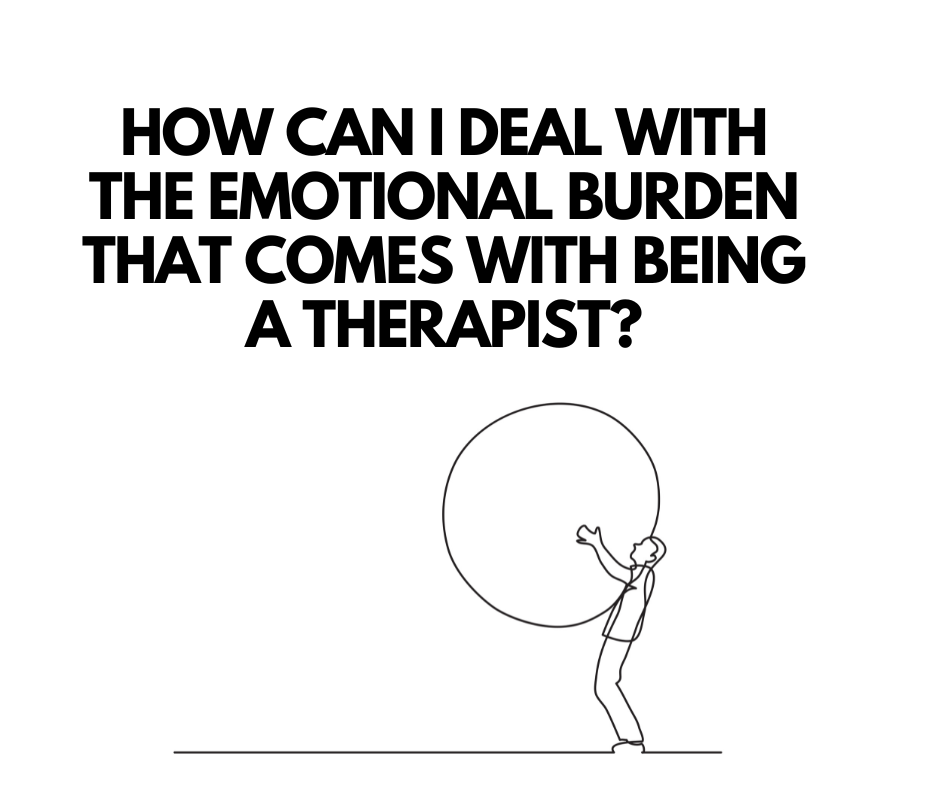Therapists are trained to hear about difficult, even traumatic experiences. It’s a big part of their job. However, this does not make them immune to feeling the impact. In fact, therapists are at higher risk of work-related stress and burnout. This is directly related to the intensity of their daily experiences. Therapists are also not immune to having their own issues. They may speak with dozens of clients a week who struggle with, for example, anxiety. In no way does this prevent the therapist from ever dealing with anxiety or anxiety disorder. Emotional struggles are part of the human experience — regardless of one’s training.
Factors That Create the Emotional Burden of Being a Therapist
A Sense of Isolation
Many people can and do talk about their job to friends, family, and their partners. Due to confidentiality restrictions, a therapist is not able to do so. They cannot lighten their mental load by sharing — not even with colleagues.
On top of that, all day long, they restrain themselves from sharing personal life details with their clients. In other words, they remain neutral all day and, afterward, they can answer when asked how their day was. The exchange of personal stories and thoughts is a big part of what makes us human. All of that is shut off from the therapist.
The Work They Do
It’s a challenge to work with difficult clients. It’s a challenge to witness so much pain and suffering. And then there are potential ethical dilemmas. Being a therapist, by definition, exposes therapists to situations that warrant seeing a therapist!
Everyday Life
After factoring in all of the above, therapists still have to manage their own lives. This could involve children, relationship issues, financial burdens, and basically, anything that the rest of the world must deal with.
Burnout
How many of the following signs of burnout sound familiar?
- Dreading work, feeling relieved when a client cancels, not being on time, daydreaming during sessions, or dreaming of different professions
- You fall back on shortcuts and repetitive interpretations
- Your empathy is lacking
- You talk about yourself with clients
- Not keeping up with psychology-related reading and research
How Therapy Can Help Therapists
Being Heard and Understood
First and foremost, seeking therapy offers any therapist relief from the vow of silence. You can talk about yourself and your problems. You can also go into detail about how your job is impacting your mental health. In return, you get feedback from someone who is trained to provide such feedback. But also, they get it and have some very similar issues themselves!
No Judgments
The therapist’s therapist is not there to judge your situation. On many levels, they understand and most likely have a therapist of their own. They want to offer neutral input for those who may feel too overwhelmed and exhausted to interpret their own behaviors and patterns.
In the Same Way That Therapy Can Help Anyone
Most fundamentally, therapists need therapy in the same way so many people do. In turn, they benefit in very similar ways. Each person comes to a session bringing their own unique background. Therapy is designed to adjust to anyone’s needs — even those of a therapist. Think about it, we don’t think twice if a medical doctor goes to another doctor for a check-up, right?
Getting Started
It’s not uncommon for a therapist to feel awkward about “needing” help. This makes it all the more important to make contact with a potential counselor. Just as you would advise a potential client, make that initial phone call. Break the ice and have a phone conversation that can get you on the path to recovery.




